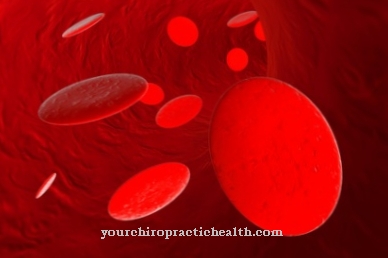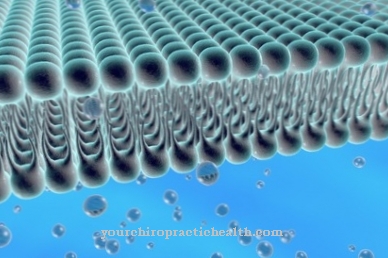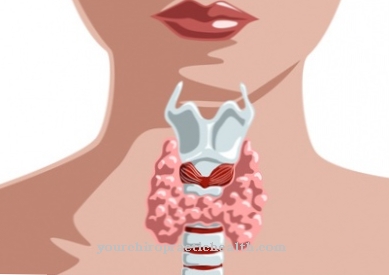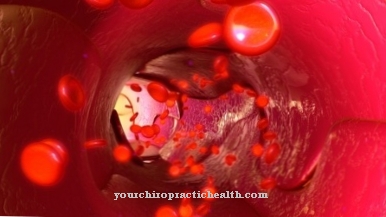A positive one Body feeling is the familiar, pleasant feeling in dealing with your own body. It is an important prerequisite for strong self-esteem and develops in early childhood.
What is the body feeling?

A positive body feeling means feeling good in your own skin. The development of a good body sensation starts with the baby. The more often physical closeness to the baby is sought and the resulting sense of well-being is confirmed, the better this is for the child's development.
Body contact in the form of cuddling and cuddling is particularly important here, although limits must also be respected. Jumping, running, climbing, romping around, sport and movement of all kinds are motors for a healthy body feeling.
People with bad body awareness are extremely critical of their body and hardly accept it. The positive, loving relationship with one's own body is built up in early childhood and is independent of factors such as beauty, fitness, health and age.
Ideally, children develop a good body image through play. Comparisons are poison for self-confidence and torpedo healthy development full of acceptance.
Function & task
Our body makes it possible to experience the world. Those who can convey this to their child strengthen them and contribute to their good body feeling. Loving hugs, cuddles and tenderness are essential for a good relationship with yourself.
Body awareness is important for the child's momentary feeling, but also for later self-confidence. It is also the cornerstone for sexuality experienced with pleasure in adulthood.
Children who have come to know their bodies as worth protecting and loving at an early age are less at risk from emotional and physical abuse and addictions. You can differentiate exactly which touch is pleasant and which is uncomfortable and you can express your own feelings.
People with a good body feeling have found that the social environment takes their wishes and feelings into consideration. This experience is the prerequisite for emotional and physical self-confidence. In order for children to develop a good body image, parents should address the child's body perceptions.
If these are accepted and not denied, it supports healthy development. If the child's feelings are ignored or negated in the long run, he gets the impression that it is "not right". There is a risk that the child will completely lose touch with their feelings.
The more often a child is motivated to try new things, the more confidently it controls its body and the more natural the multi-faceted feelings that go with it become.
Because of their own negative experiences, parents often try to ignore the many body perceptions of their children, to belittle them or to judge them negatively. Parents also find it difficult to accept their children's anger because they are afraid of them or of an angry child. However, you shouldn't portray negative feelings as inappropriate either.
In order to develop its self-confidence, the child has to find out that it has legitimate demands that do not always match the wishes of the parents. However, this does not mean that children generally have to enforce their demands.
You can find your medication here
➔ Medicines for painIllnesses & ailments
If the body feeling is weak, there are disruptions in many areas. While a child with good self-esteem is able to reject exploitative, humiliating, or abusive behavior, a child with little physical awareness can hardly do so.
Children are interested in their physical changes, especially when they are pointed out with admiration. They are happy and proud when friends discover, for example, that they have grown larger. The incentive creates acceptance.
The body feeling develops from the balance of affirmative, accepting, but also terrifying and disappointing experiences. At some point the child begins to compare himself to others. If it received mostly positive feedback beforehand, it can largely appreciate itself. If this is not the case, there will be major cuts in self-esteem.
Abuse takes many forms. The superior person takes advantage of the inferior person's trust, dependency, fear and ignorance. Mental abuse also has many facets and often even begins immediately after birth. If the child is not wanted, it is perceived as a disruptive factor. Parents of unwanted children often leave the child alone, are indifferent, punish them with deprivation of love, devalue them, humiliate them, ridicule them or lock them up. In this way, self-esteem is destroyed.
People who suffered emotional abuse at an early age often develop borderline disorders and often carry the guilt of not deserving better with them for a lifetime.
Addiction diseases such as alcoholism or eating disorders often develop from early emotional child abuse. Sexual and physical abuse in the form of blows or the use of physical strength against the child triggers severe trauma with devastating effects on health.
The range of physical and emotional symptoms as a result of abuse is enormous. Psychosomatic complaints such as language disorders, sleep disorders, poor concentration, nightmares, skin diseases, allergies, abdominal pain, panic attacks, a disturbed body feeling up to neuroses, personality disorders and suicidal behavior occur.
If children do not move sufficiently, they do not get to know their bodies extensively. The result can be a bad balance, a crooked posture and an overall poor feeling for your own body. These people find it difficult to listen to the needs of the body and the ability to control it. For example, coordination and rhythmic ability can be poorly developed. Ultimately, this can also lead to severe postural damage.
Lighter illnesses such as poor reading and spelling as well as hyperactivity can be successfully treated with perception exercises to improve body awareness.
Trauma as a result of emotional or physical abuse require longer psychotherapy and patience on the part of the patient, because setbacks must always be expected.
























.jpg)



